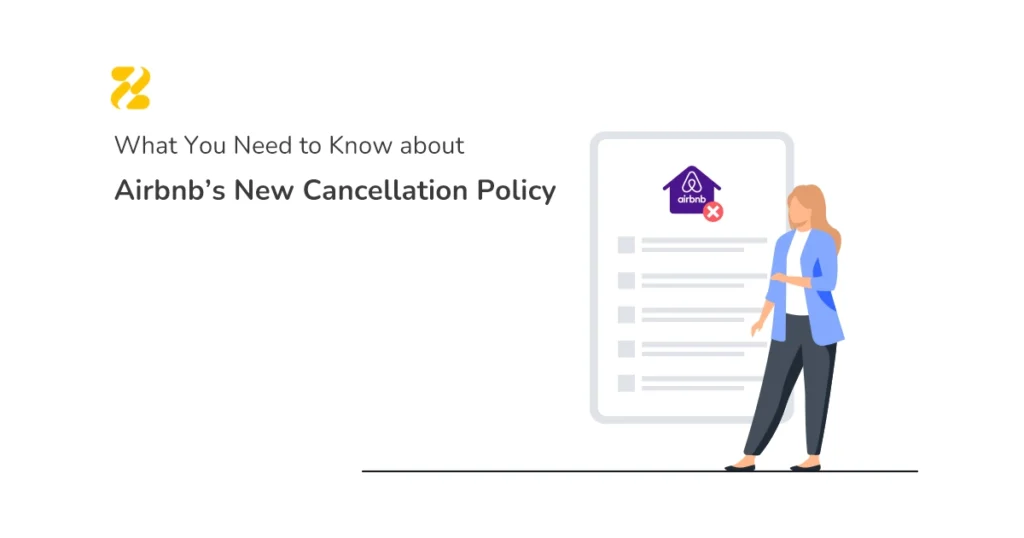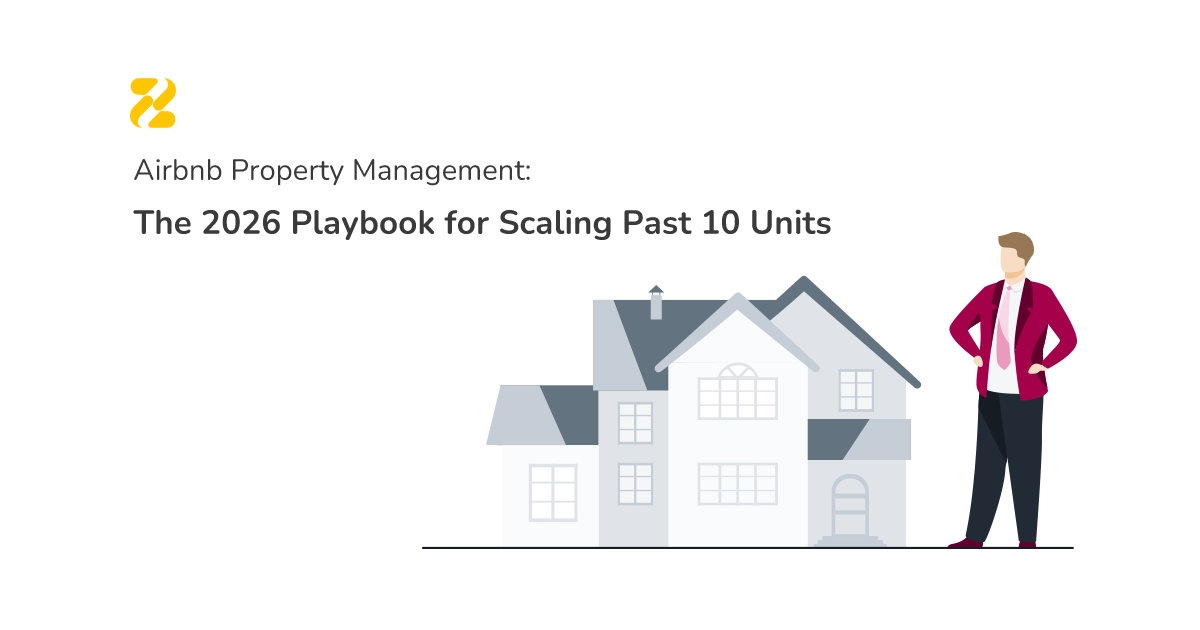Airbnb has introduced significant changes to its cancellation policies, effective from 1 October 2025. These updates aim to provide clearer guidelines for both hosts and guests, balancing flexibility with predictability.
For hosts, this means a more transparent framework to protect income and reduce last-minute disruptions. For guests, it ensures fairer refund rules while still encouraging commitment. Understanding these changes is essential for managing bookings effectively.
Table of Contents
Key Changes to Airbnb’s Cancellation Policies
1. Limited Cancellation Policy
Airbnb has replaced the old “Strict” policy for new listings with the Limited cancellation policy, which balances guest flexibility with host protection:
- Full refund: Guests can cancel up to 14 days before check-in, including taxes.
- Partial refund: Cancellations between 7 and 14 days before check-in receive a 50% refund, including taxes.
- No refund: Cancellations within 7 days of check-in are non-refundable.
This policy provides guests with some flexibility while ensuring hosts are not left out of pocket for preventable cancellations.
2. Standard 24-Hour Free Cancellation
- Guests can cancel within 24 hours of booking for a full refund, provided the booking was made at least 7 days before check-in.
- This replaces the previous 48-hour window and gives guests more reassurance, particularly for short-term stays.

3. Transition from Strict to Firm Policy
- Listings currently using the old Strict policy will automatically migrate to the Firm policy unless the host opts out.
- Firm Policy Details:
- Full refund: Up to 30 days before check-in
- 50% refund: Between 7 and 30 days before check-in
- Non-refundable: Within the final 7 days
Hosts who prefer the previous structure must review and manually adjust their listings before the automatic migration.
Implications for Hosts
Income protection: Clear refund windows help hosts manage cancellations more effectively.
Predictability: Fewer last-minute cancellations provide greater certainty in rental income.
Action required: Review and update listings to align with the new policies.
Guest confidence: Clear refund rules may encourage more bookings.
Implications for Guests
Clarity: Refund rules are now easier to understand and more consistent across listings.
Flexibility: Guests can make changes with confidence up to 14 or 30 days before arrival, depending on the policy.
Responsibility: Always check a listing’s cancellation policy before booking and consider travel insurance for unexpected events.
It’s also worth reviewing how cancellation policies differ across platforms. For example, Booking.com applies a separate set of rules depending on the property and rate type, which you can explore in their cancellation policy guide.

Offer a Non-refundable Option
Beyond standard cancellation policies, hosts can also consider offering a non-refundable rate for additional protection and revenue security.
Beyond standard cancellation policies, hosts can also consider offering a non-refundable rate for additional protection and revenue security:
- Hosts set a discount, typically around 10% off the base price (except in certain regions, such as China).
- The discounted rate appears alongside the standard rate in search results.
- At checkout, guests choose either the standard rate (with the usual cancellation policy) or the discounted, non-refundable rate.
- If a guest cancels a non-refundable booking, the host retains the full payout for the reserved nights, excluding the cleaning fee.
- Typically, bookings qualify if the check-out date is within a 60-day window, and the discount does not apply to pre-approval or special offer bookings.
Offering this option can give hosts more financial certainty and help guests decide based on their confidence in travel plans.
Navigating the Policy Effectively
Whether you’re a host or a guest, clear communication and careful planning are key to avoiding frustration:
- For hosts:
- Clearly outline the cancellation policy in your listing.
- Consider offering travel insurance or non-refundable options for extra protection.
- Keep your calendars accurate and your listing descriptions up to date to reduce last-minute cancellations.
- For guests:
- Carefully review the cancellation policy before booking.
- If your plans are uncertain, opt for a more flexible policy or purchase travel insurance.
- Understanding the rules in advance prevents surprises and ensures a smoother booking experience.
By following these practices, both hosts and guests can enjoy a more reliable and predictable Airbnb experience, even under the new Limited and Firm policies.

Old vs New Airbnb Cancellation Policies: Quick Reference
| Policy | Full Refund | Partial Refund | Non-Refundable | Notes |
|---|---|---|---|---|
| Old Strict Policy | Within 48 hours of booking (if booking >14 days before check-in) | 50% if cancelled 7–14 days before check-in | Within 7 days of check-in | Applied to most listings before 1 Oct 2025 |
| Limited Policy (New) | Up to 14 days before check-in | 50% between 7–14 days before check-in | Within 7 days of check-in | Replaces Strict for new listings; balances flexibility and protection |
| Firm Policy (New) | Up to 30 days before check-in | 50% between 7–30 days before check-in | Within 7 days of check-in | Automatic migration for listings using old Strict policy; hosts can opt out |
Conclusion
Airbnb’s updated cancellation policies, effective 1 October 2025, aim to strike a balance between guest flexibility and host reliability.
- Hosts benefit from clearer rules and reduced risk of last-minute losses.
- Guests gain more predictable refund options, making it easier to plan travel.
By understanding and adapting to these changes, both hosts and guests can enjoy smoother, more reliable booking experiences.
Image by pch.vector on Freepik.




